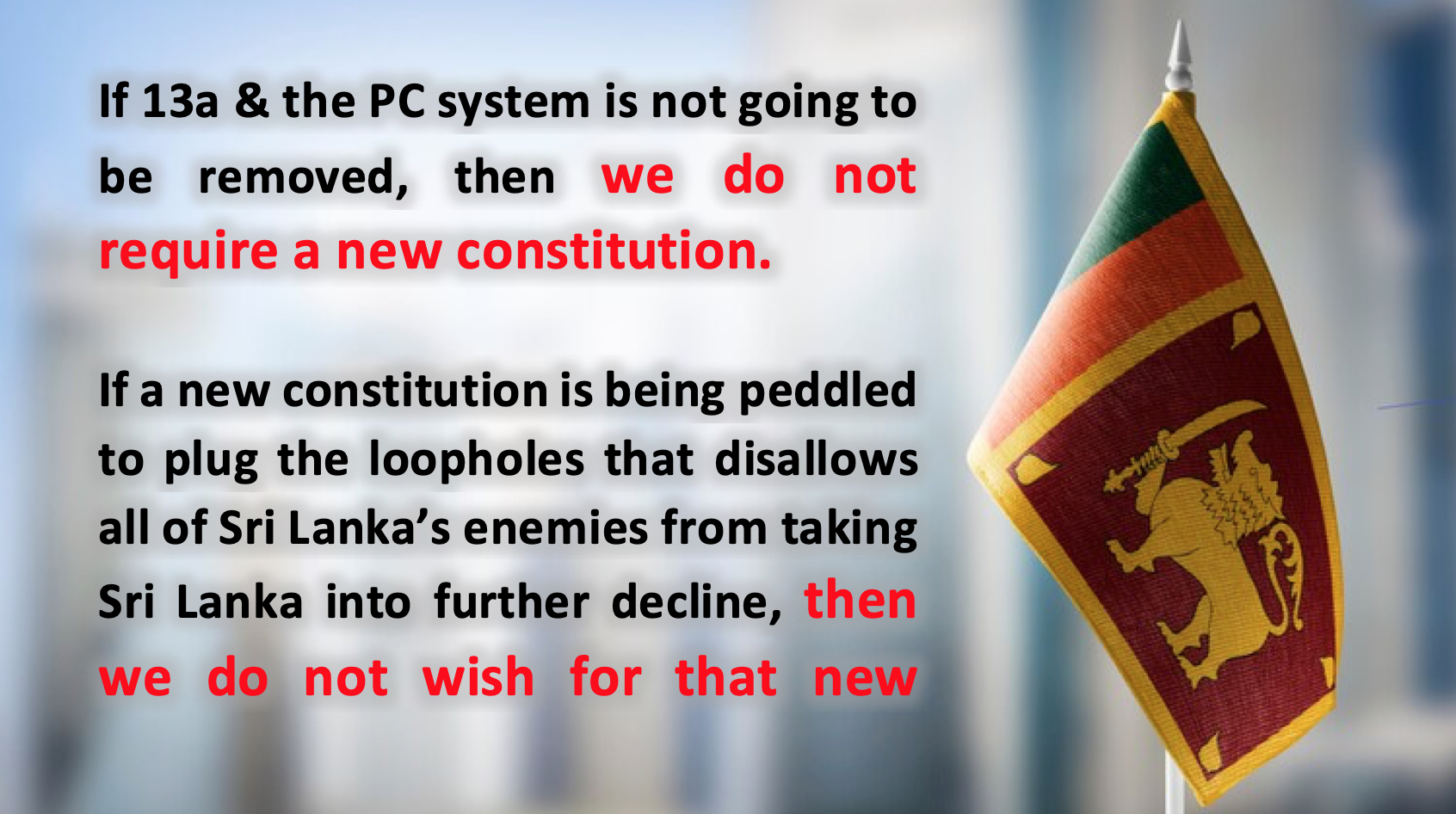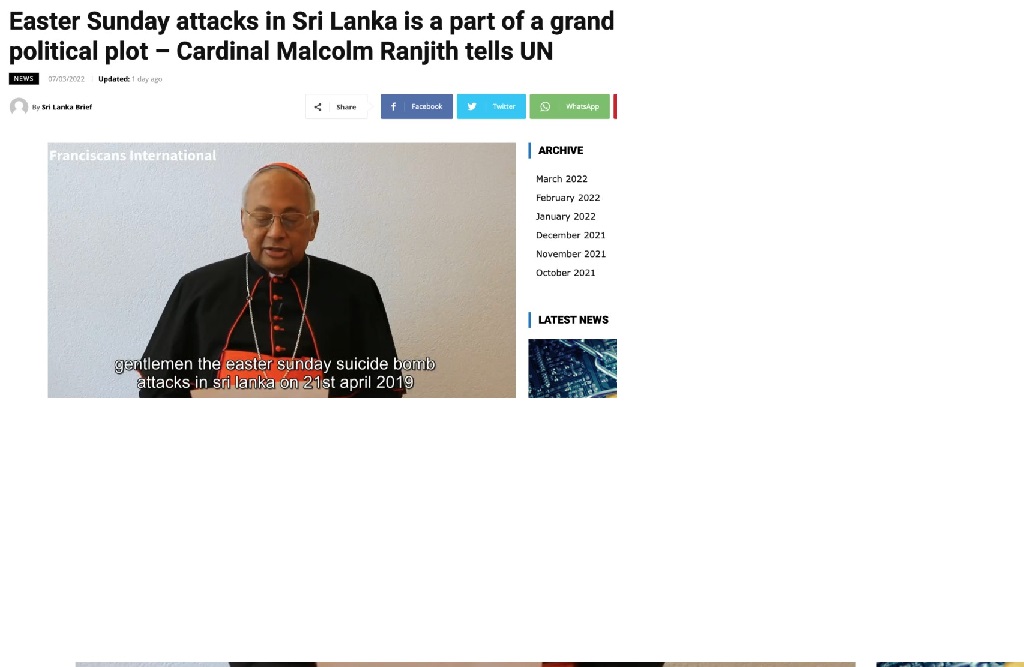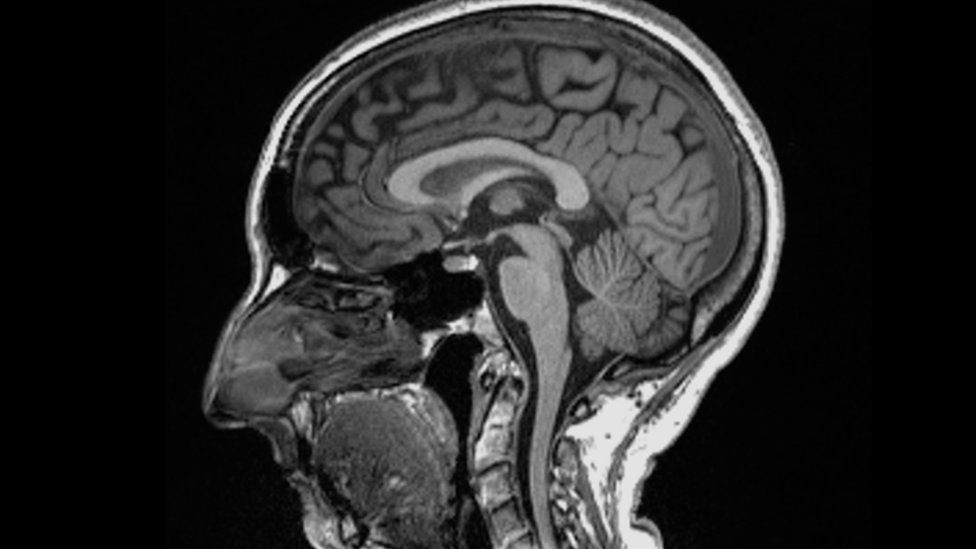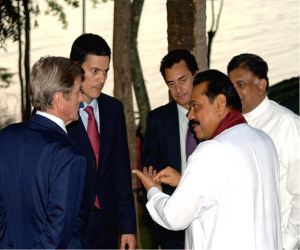KAMALIKA PIERIS
Anton Balasingham (1938 – 2006) played an important role in the Eelam war. Balasingham and his wife influenced, assisted and guided the group from the very beginning, said analysts. Balasingham spent time with the LTTE leadership, in India in the 1980s and Sri Lanka in the 1990s.
By virtue of his close association with LTTE chief Velupillai Prabhakaran for nearly three decades and his dogged pursuit of the LTTE cause, Balasingham had created a niche for himself in the monolithic outfit, observed Muralidhar Reddy. Bala was the LTTE’s chief negotiator and political strategist. Also its chief spokesman, propagandist and theoretician. LTTE could not find a replacement for Bala after he died.
Balasingham grew up in Jaffna. His father, an electrical foreman was from Eastern province. His mother a midwife was from Jaffna; His father was a Hindu and mother Roman Catholic. The father died when Balasingham was young and his mother took the family to Karaveddy, 7 km from Point Pedro.
Balasingham was educated at Sacred Heart College, Karaveddy and Nelliady Central College. Balasingham was raised a Roman Catholic, but he was also attracted to leftist politics which was popular in Karaveddy at the time.
In the 1960s, Balasingham moved to Colombo as a sub-editor of the Virakesari newspaper. He was in charge of foreign news which entailed translating Reuters and other articles into Tamil. Balasingham then got a job as a translator at the British High Commission in Colombo. His wife fell ill and in 1971, Balasingham immigrated to UK with the help of the British High Commission to obtain treatment for his wife. His wife died in 1976 and in 1978 Balasingham married Adele Ann Wilby, an Australian nurse working in the UK.
Balasingham managed to study while working in the UK. He obtained a M.A. degree from the South Bank Polytechnic. He started a PhD course but did not complete it.
Politically, Balasingham first linked with Eliyathamby Ratnasabapathy, founder of EROS. He also had discussions with Padmanabha, the EPRLF leader, and then a student in London. N.S. Krishnan, the LTTE Western European representative then enticed Balasingham into the LTTE. Initially Balasingham was commissioned to write tracts, leaflets, pamphlets etc. for the LTTE in English and Tamil. In 1979 he produced the LTTE ideological leaflet ‘Towards socialist Eelam’. He did a lot of translations for the Tigers later, said DBS Jeyaraj.
Balasingham and Adele went to Tamil Nadu and met the two LTTE leaders, Prabhakaran and Uma Maheswaran. When Prabhakaran and Maheswaran split Balasingham tried to reconcile the two but failed. Instead of resolving the dispute Balalsingham’s intervention deepened the dispute said one analyst. After the split became permanent in 1981, Balasingham joined Prabhakaran though the Prabha loyalists were very few compared to the Uma group at that time. Balasingham had judged correctly.
The Balasinghams took up residence at a state guest house in Madras with the help of a Tamil Nadu politician, a friend of Prabhakaran. Then they started to lecture to Tamil youth, on request.
Cyril Ranatunga, former Army Commander, recorded later that in May 1981 the District Intelligence Bureau of Jaffna was getting information regarding the activities of Anton Balasingham and his wife, Adele, from informants who had attended the lectures of the Balasinghams.
The main thrust of Balalsingham’s lectures to the ‘Boys’ in Madras had been :( a) the time was appropriate for as many Tamils as possible to seek asylum in the capitals of Europe, America, Canada and Australia. This should be to convince the foreign sympathizers that the Tamils are an oppressed race, they are being harassed by the Sri Lankan Armed Forces and the Police and the government of Sri Lanka is violating Human Rights.(b) The need for some sensational act to attract the attention of the world to the cause of the Tamils and also provide adequate grist to the mills of the world media.(C) The need for a steady flow of funds if the movement is to be sustained particularly if an armed struggle had to be launched. Balasingham had stressed that an armed struggle was inevitable. (d) Adele Balasingham had specifically mentioned that she was in touch with the Australian immigration authorities and the latter welcomed asylum seekers from oppressed communities.
Prabhakaran returned to Jaffna in 1987. Balasingham remained in Madras to oversee political work but later he and Adele moved to Jaffna. When war erupted between the LTTE and IPKF in late 1987 Balasingham and Adele became targets and they returned to London. That is because India had never trusted the Balasinghams and at one point deported them. The Indian government expelled Balasingham after the Thimpu talks OF 1985.Tamilnadu protested and Balasingham was allowed to return to Tamil Nadu.
After the IPKF left, Balasinghams returned to Jaffna. While Adele Balasingham helped out with the medical unit and the women’s wing, Balasingham attended to political matters. The Jaffna media too came under his influence. He also wrote extensively using the pseudonym Brahma Gnani” for the Velicham journal.
When the Sri Lankan military recaptured in the Jaffna peninsula in 1995 the LTTE withdrew to the Vanni and Balasingham relocated to Thiruvaiyaru near Kilinochchi. Later they moved to Puthukkudiyiruppu. They continued to stay sporadically in Jaffna thereafter.
Balasingham was important to the LTTE and the LTTE recognized this. In 1998 Balasingham fell ill in Jaffna. He was suffering from acute renal failure and needed to go abroad for advanced treatment. The government of Sri Lanka placed conditions on helping him, so the LTTE did it by themselves. The UK daily, Guardian commentedonthe extraordinary lengths the LTTE went to in 1999 to smuggle him out of the country for treatment.
In January 1999, he was taken by a Sea Tiger boat personally captained by Sea Tiger Commander Soosai to a LTTE ship at mid sea .Thereafter, the ship proceeded to Phukhet in Thailand.From ThailandBalasingham was taken to Singapore and London. Then he went to Oslo, where he received a transplanted kidney donated by a young Sri Lankan Tamil. After recovery Balasingham returned to work for the LTTE.
Initially Balasingham had a good relationship with Prabhakaran. Balasingham was one of the few who could engage in constructive discussion with Prabha. Balasingham accompanied Prabhakaran to important meetings, such as that with Indian Prime Minister Rajiv Gandhi in Bangalore in 1986, to act as translator and political adviser. Prabhakaran did not speak English. He was Prabhakaran’s speechwriter. Despite the terminal illness he wrote the Great Heroes Day” speech for the LTTE leader in November 2006.
Prabhakaran and Balasingham presided over press conferences together. The best known of these is the press conference Prabhakaran gave in 2002 to an international audience. At one point when journalists wanted Prabhakaran to answer instead of Balasingham told the media that he and the LTTE Chief were of the same mind ” and spoke with the same voice.”. Bala was also at Prabhakaran’s side when Prabha met various Sri Lankan politicians such as the Muslim Congress, Up Country People’s Front and Ceylon Workers Congress after this speech.
Balasingham played a role in all the peace conferences.. At Thimpu,1985, Balasingham was backstage, giving instructions to the LTTE delegation of Lawrence Thilagar and Anton Sivakumar. Balasingham led the LTTE delegation in the 1990 peace talks in Colombo. Balasingham did not take any direct part during the 1994/95 peace talks in Chundikuli but instead monitored the talks from another room and exchanged notes with S. P. Tamil selvan who led the LTTE delegation.
He led the LTTE delegation at talks with the Government in Thailand, Norway, Germany and Japan in 2002-2003.In Oslo, on December 5, 2002, Balasingham and his government counterpart G.L. Pieris agreed that the LTTE and the Sri Lankan government would explore solutions within a federal model. Balasingham was primarily responsible on the LTTE side for getting the ceasefire adopted.Balasingham then made a triumphant re- entry into the Wanni by travelling on a sea plane from Maldives that landed on the Iranamadu tank. Lastly, he led the LTTE at talks in Geneva in early 2006, but fell ill during the talks.
Bala was indispensable at these talks.Balasingham was the only English speaking person in the LTTE. KP stated that LTTE suspended talks in 2003 because they lacked competent negotiators. Except for Balasingham, LTTE negotiators simply failed to match the skill of government representatives. The government had GL Pieris and several other expert negotiators while we lacked experienced men, he said. It was the same in 2006. LTTE missed Balasingham at their peace talks in Geneva, in 2006, Bala was ill.
Balasingham enjoyed special status in the UK during the Eelam war. He was considered the leader of the LTTE in the UK. Balasingham was the link between Norway and Prabhakaran. Norway could not meet Prabhakaran direct, only through Bala. Bala represented the LTTE in all discussions with Norway , communicating continuously with Prabhakaran during the discussions.
Norway invested exclusively in Bala and their strategy was mostly based on their special relationship with him., said analysts. A leaked US diplomatic cable revealed how top Norwegian diplomats met Balasingham in London secretly, to discuss implications of Kadirgamar’s assassination.
Bala had very good relations with Norwegian peace envoy Erik Solheim. For a long period of time, I came to London every week, speaking with Bala, having his point of view about how the peace process could be moved forward; having his analysis of the situation in Sri Lanka; also exchanging my view ” Solheim said at the memorial service to Balasingham in London.
Erik Solheim described the relationship between Prabhakaran and Balasingham as that of a husband and wife,” always needing each other but at the same time always fighting with one another. Together, when [Balasingham and Prabhakaran] combined their forces, they were a strong team. Separately, neither of them could lead the struggle.”
They were odd bed fellows anyway. Prabhakaran, in Balalsingham’s own words, was a war lord who has no real interest in political concepts.” Prabhakaran was a man who had virtually zero understanding of the political consequences to his actions, agreed DBS Jeyaraj. Bala on the other hand had an academic approach to the Eelam issue, not a combatant one. Bala was for a negotiated settlement. But Bala could not take decisions, only Prabhakaran could.
“Balasingham really believed the problem could be solved through negotiations, but Prabhakaran had other ideas. Both of them had several arguments and Balasingham often ended up cutting short his trips to the Vanni because of the arguments he had with Prabhakaran,” Karuna said. On many occasions, Prabhakaran made it a point to contradict Bala.
Bala was gradually sidelined. The LTTE drafted the ISGA without consulting Bala . Balasingham voiced disappointment at the fact that he was largely excluded throughout the ISGA drafting process.
By 2006, Prabhakaran and Balasingham were not on good terms. Thamilselvan, Castro, Pottu Amman in the Wanni and Ruthirakumaran in New York had prejudiced Prabhakaran’s mind against him , said Bala. One reason for Bala’s unpopularity was the Oslo agreement which spoke of a federal solution. This did not go down well with the hardliners in the LTTE and led to the sidelining of Balasingham . The charge against Bala was that he had made the organization give up the Eelam demand.
In November 2006 Bala had told DBS Jeyaraj that the LTTE would lose the war. He had tried to alert Prabhakaran at a one to one meeting at Kappapulavu but failed to convince him. He had entreated Prabhakaran to see reason and understand the situation. But Prabhakaran did not.
Thamilselvan, Castro, Pottu Amman in the Wanni and Ruthirakumaran in New York had told Prabha that the Sri Lankan armed forces could be defeated and that the world would back the LTTE against Rajapaksa. Senior leaders like Soosai, ‘Baby’ Subramanian, Balakumaran and Para understood the predicament but were powerless to persuade Prabhakaran to face facts, Bala said.
Balasingham died on 14 December 2006 at his home in South London. Balalsingham’s funeral was held on 20 December 2006 at Alexandra Palace, London with a parallel service in the Vanni. On that day the LTTE conferred the title Thesathin Kural (Voice of the Nation) on Balasingham.
Adele Balasingham played a significant role in the Eelam war. Suicide Killers, a documentary produced by BBC in 1991 shows Adele in Tiger uniform carrying an AK 47 and wearing a Cyanide capsule around her neck.
Adele went with her team, from school to school recruiting children and camp to camp providing guidance. Among a dozen videos containing testimonies of LTTE child soldiers speak of Adel Aunty and her baby brigade”
At Patrima School, one of the schools from which the LTTE recruited child cadres, 543 students were indoctrinated by LTTE including Adele. They were taken to the Skandapuram camp and trained by Adele and those working with her. Children, as young as 10, were trained in handling weapons and bombs. Adele was at the graduation with LTTE male and female leaders, Tamilchelvam and Vidusha,.
At the Anbu base children as young as 12 were trained and sent to fight. The children who fled were captured and jailed. Tamil children who fled from the LTTE or freed by the Sri Lankan security forces implicated Adele in recruitment, indoctrination, training, and direction. According to multiple testimonies, Adele worked with Vidusha, Durga and Selvi. They saw Adele instructing Vidusha.
Today, Mrs. Balasingham, who had encouraged the use of child soldiers against the SLA, lives peacefully in the UK observed Shamindra Ferdinando..After the death of Balasingham, Adele lives in a large double-storey home in a quiet street in New Malden, a middle-class residential suburb in southwest London. A war criminal, Adele committed crimes against humanity. Should Adele not be charged, arrested, tried and sentenced said analysts. ( Continued)
there is a photo below.











 +1View gallery
+1View gallery




